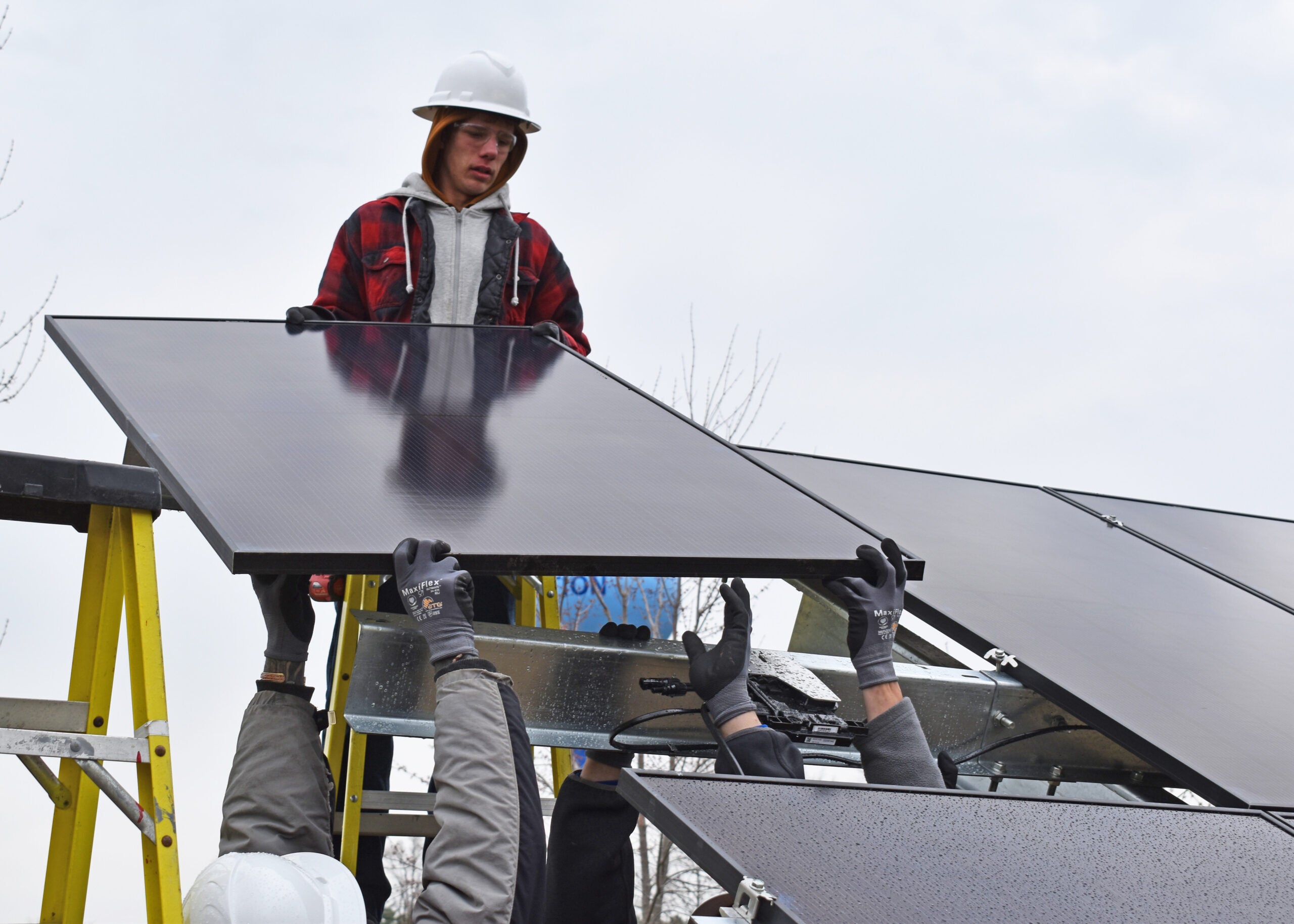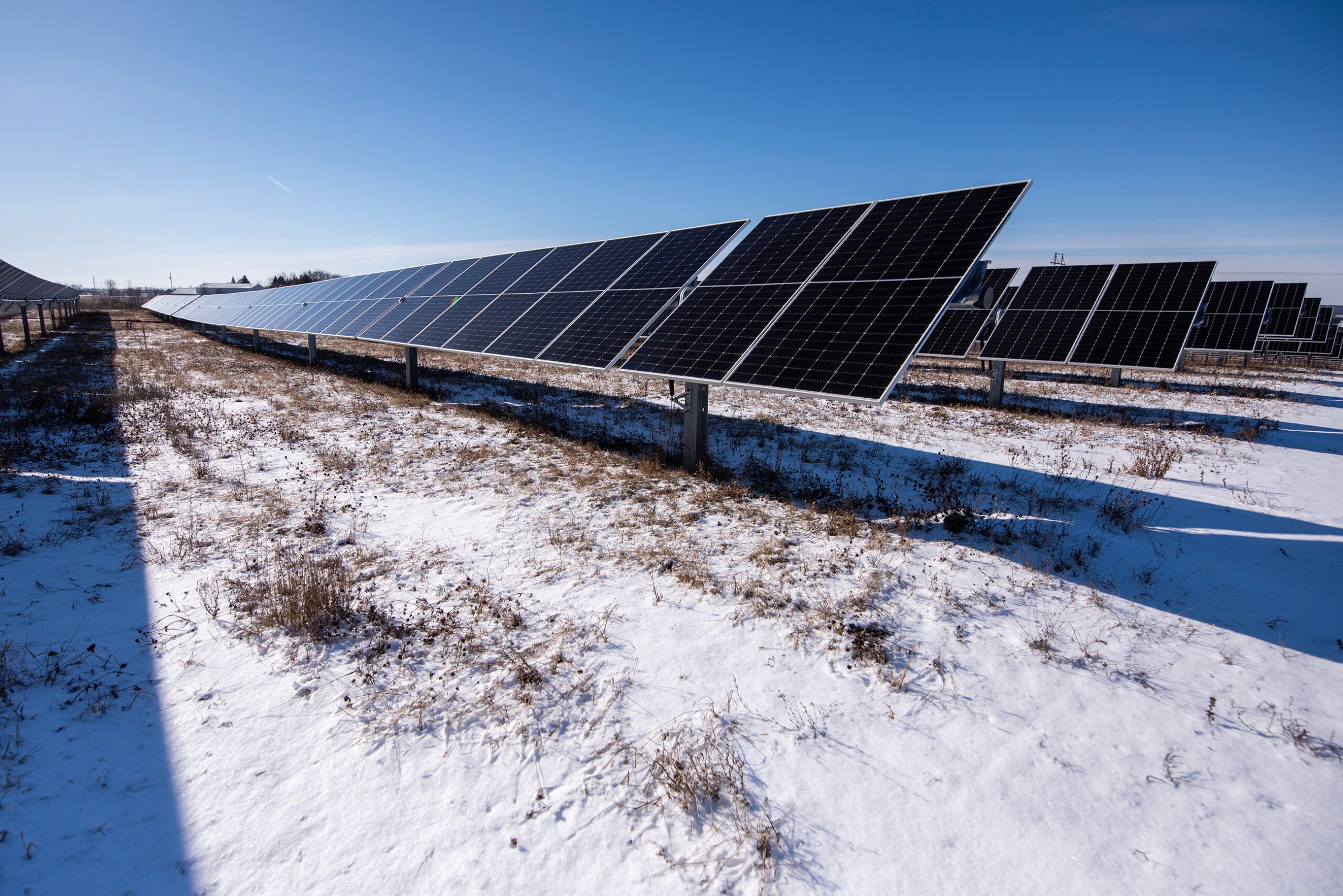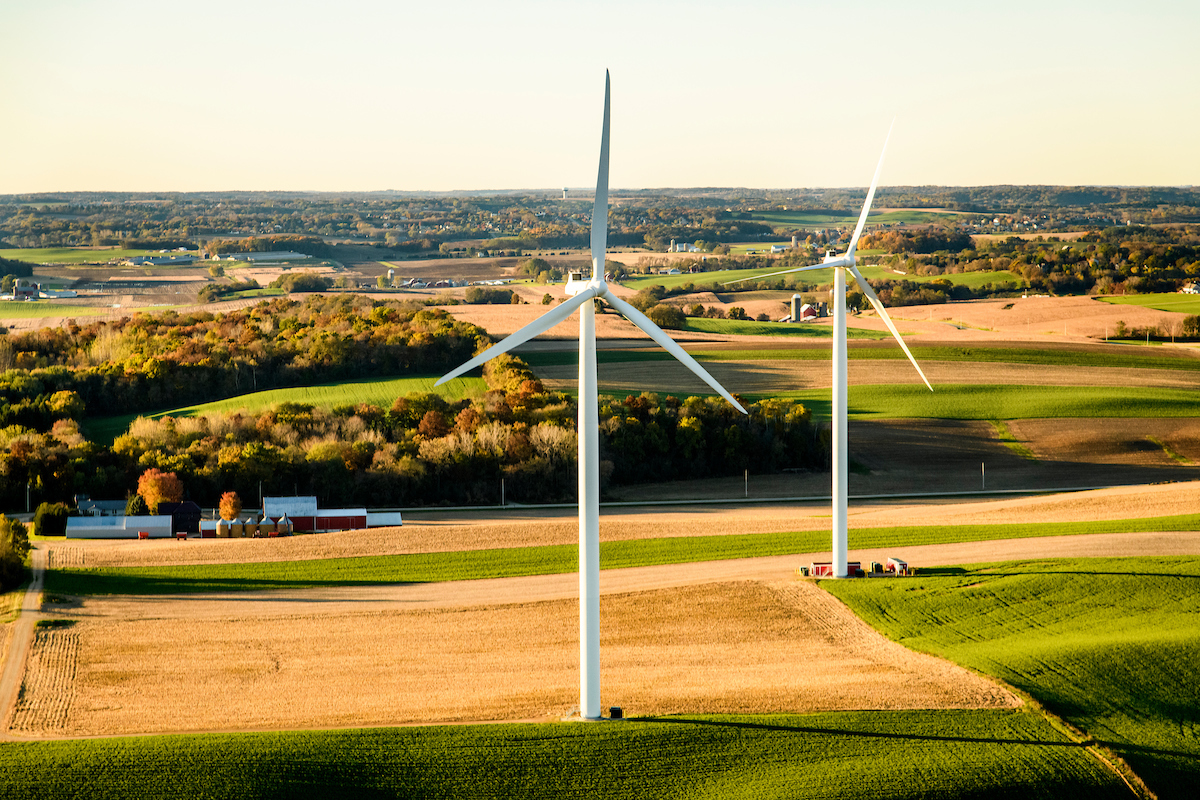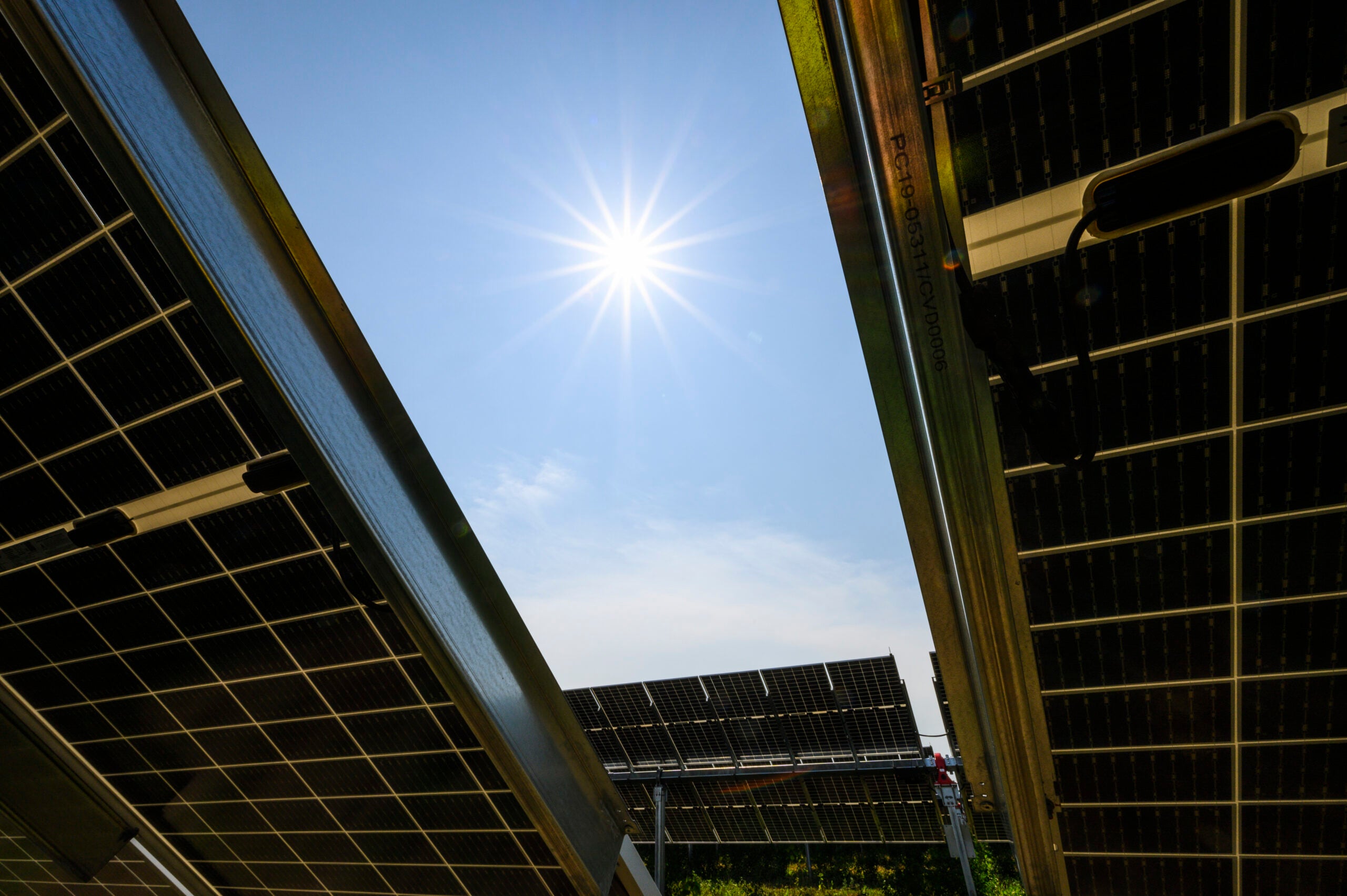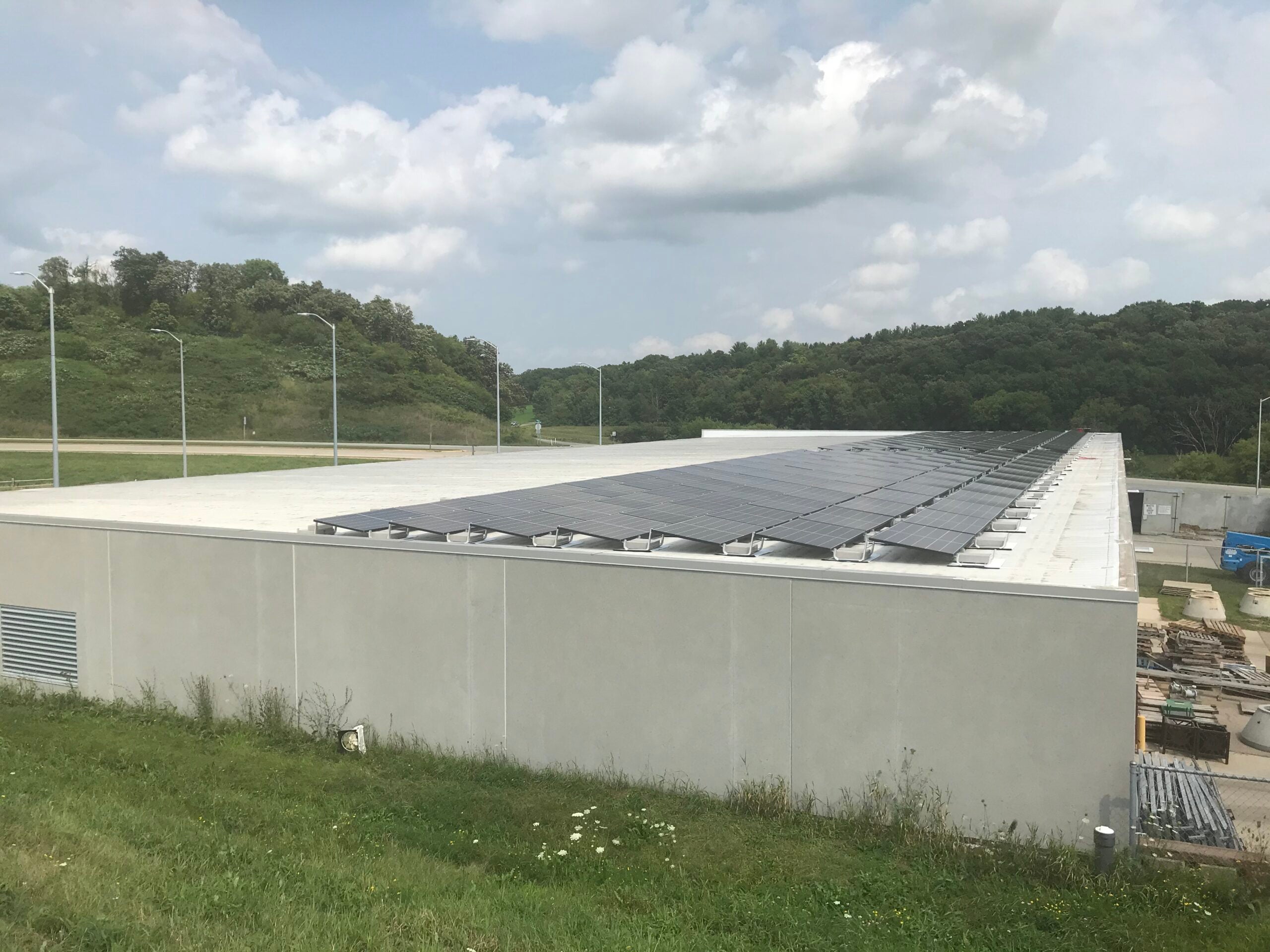The Menominee Indian Tribe of Wisconsin is taking steps to advance the transition to renewable energy on the reservation.
Members of the tribe participated in a solar energy workshop at the College of Menominee Nation last week run by Indigenized Energy, a nonprofit that works with tribes to pursue energy sovereignty. The Menominee also constructed a 40-kilowatt solar array outside of the college’s Sustainable Development Institute.
The training program featured a workshop that covered energy planning, a summary of clean energy initiatives already planned on the Menominee reservation and a discussion about next steps. Multiple stakeholders were present including representatives from the Menominee, Oneida, Potawatomi, Lac du Flambeau, Great Lakes Inter-Tribal Council, Midwest Tribal Energy Resources Association, state Department of Natural Resources, Public Service Commission of Wisconsin, Alliant Energy and Focus on Energy.
News with a little more humanity
WPR’s “Wisconsin Today” newsletter keeps you connected to the state you love without feeling overwhelmed. No paywall. No agenda. No corporate filter.
“The Menominee Nation is committed to taking the necessary action to explore clean and renewable energy initiatives,” Menominee Chairperson Gena Kakkak said at the workshop. “The work that you’re doing is important to the future for our nation and strong and healthy Indigenous nations that look out for our people and for our environment.”
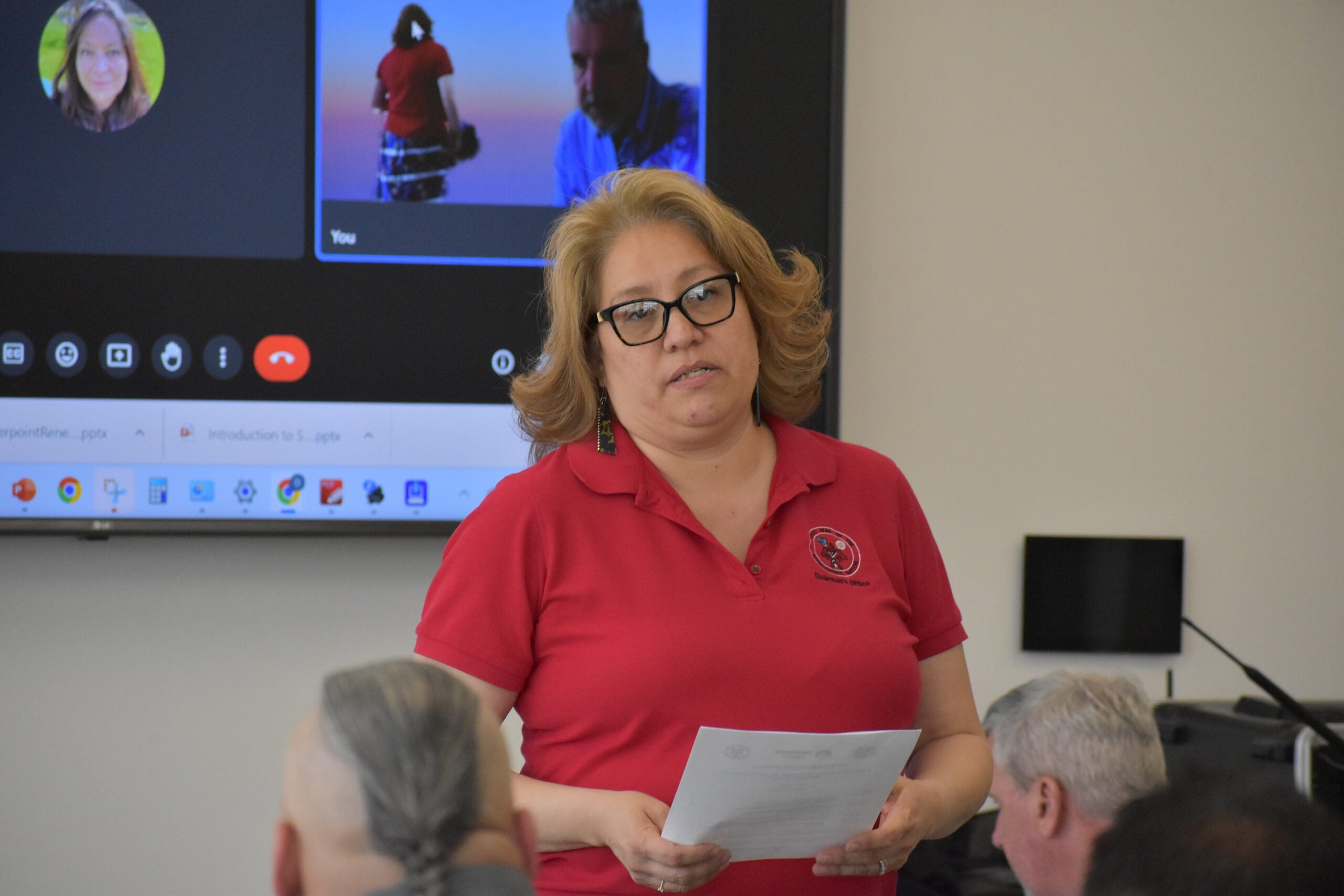
Rebecca Edler, acting director of the Sustainable Development Institute at the College of Menominee Nation, said the solar installation will provide enough energy to power the institute’s building and sell energy back to the grid. She said both the training and solar installation were funded in part by a grant from the Tribal Solar Accelerator Fund.
Daniel East, director of training and technical operations for Indigenized Energy, said his organization helped an outside contractor train the Menominee on the logistics of solar installation. He said the solar project completed during the training was “oversized” for the building, but designed with elements that would offer educational opportunities.
“The adjustable tilt feature of this particular ground mount will allow them to change the tilt seasonally, but they could also just do it in a classroom setting and really learn about how the different pitches of an array produce different power in real time,” East said.
The system also offers expansion opportunities, such as adding electric vehicle chargers and electric farm equipment, he said.
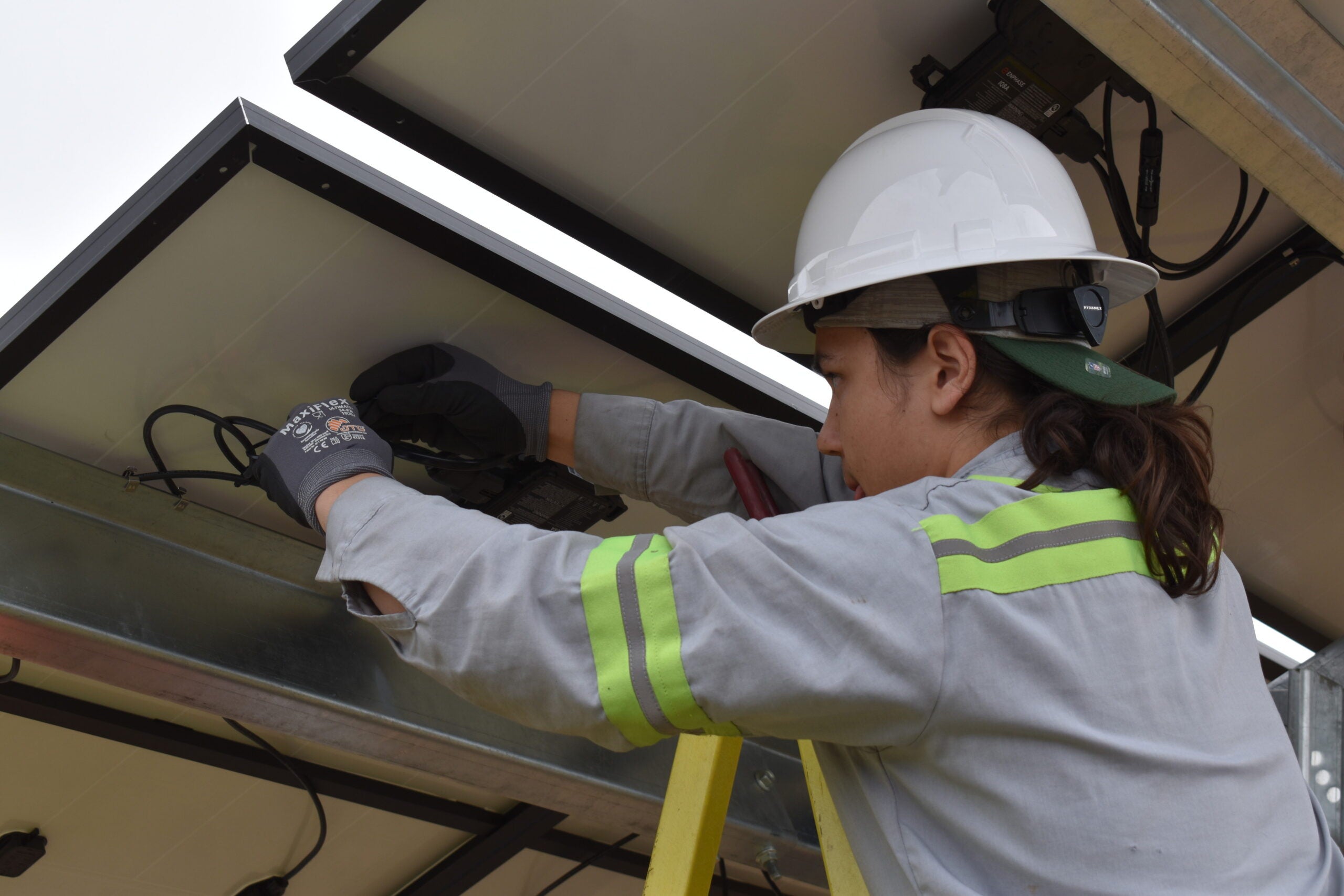
But East said the learning went both ways.
“We’re learning as much from them as they might be learning from us, if not more,” he said. “That’s really inspiring to me to kind of be in that position and have the honor to kind of be here and be a sponge to their culture.”
For the Menominee people, Edler says, sustainability has been a way of life for generations through its sustainable forestry practices. Edler said moving away from fossil fuels is another step toward honoring the tribe’s past.
The college began working on those initiatives prior to the training by monitoring greenhouse gas use and creating a sustainability committee on campus, she said.
“Our work all revolves around the Menominee way of thinking of sustainability,” Edler said. “It’s always been a part of who we are as people to work towards improving lives, not taking more than we’re using and figuring out how to self-sustain ourselves, our community, our people.”
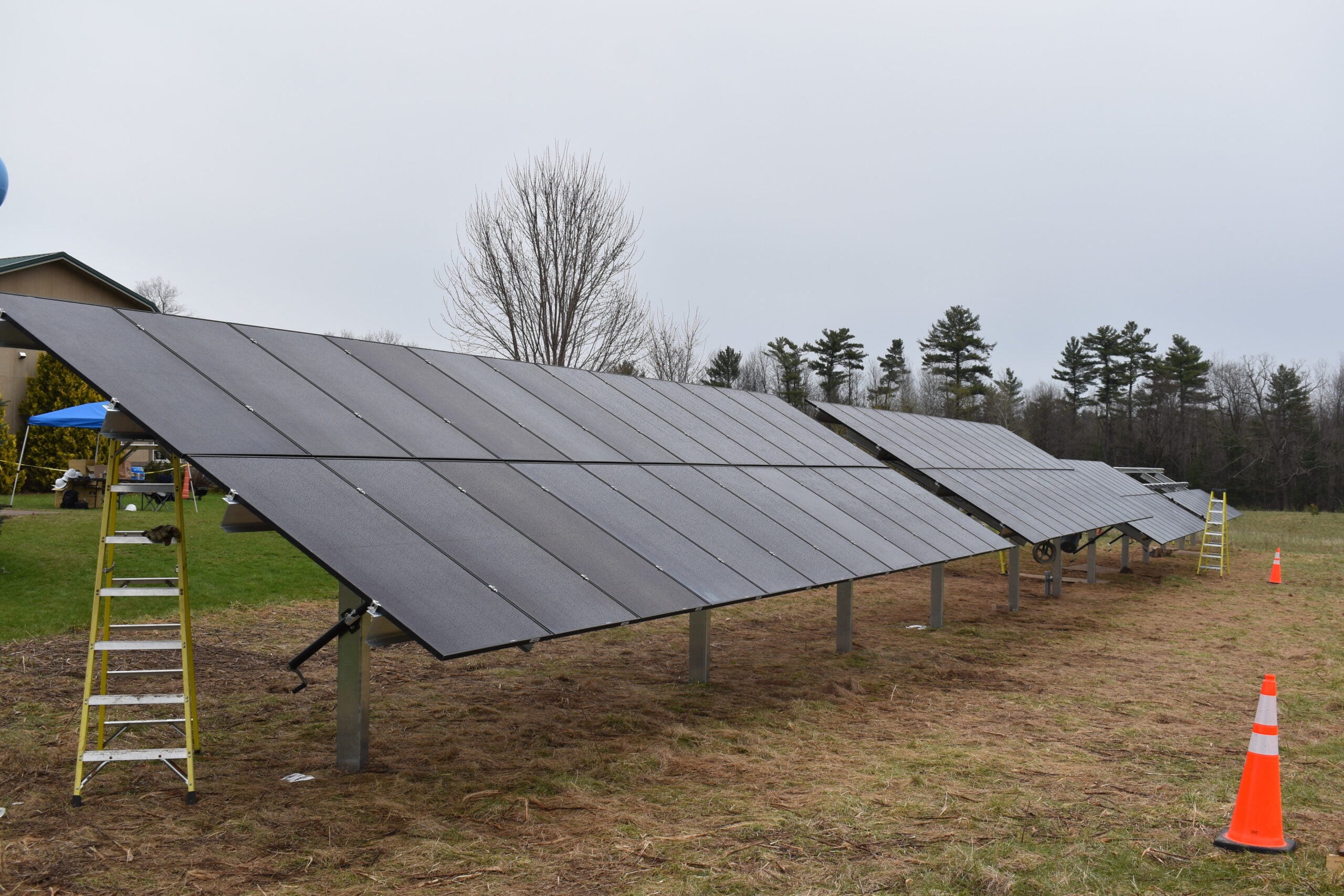
Menominee have plans for future renewable energy projects
During the energy planning workshop, Darryl Pyawasay, renewable energy manager for the Menominee, gave a rundown on some of the tribe’s plans for the future.
One of those projects is an elder solar pilot program to help the tribe’s older population with their electric bills. Pyawasay said it will provide solar installations on their homes, as well as battery backups.
“Right now, we’ve got money budgeted for up to five homes that we’re going to be installing,” Pyawasay said. “Elders are going to be prioritized based on age (and) medical equipment needs.”
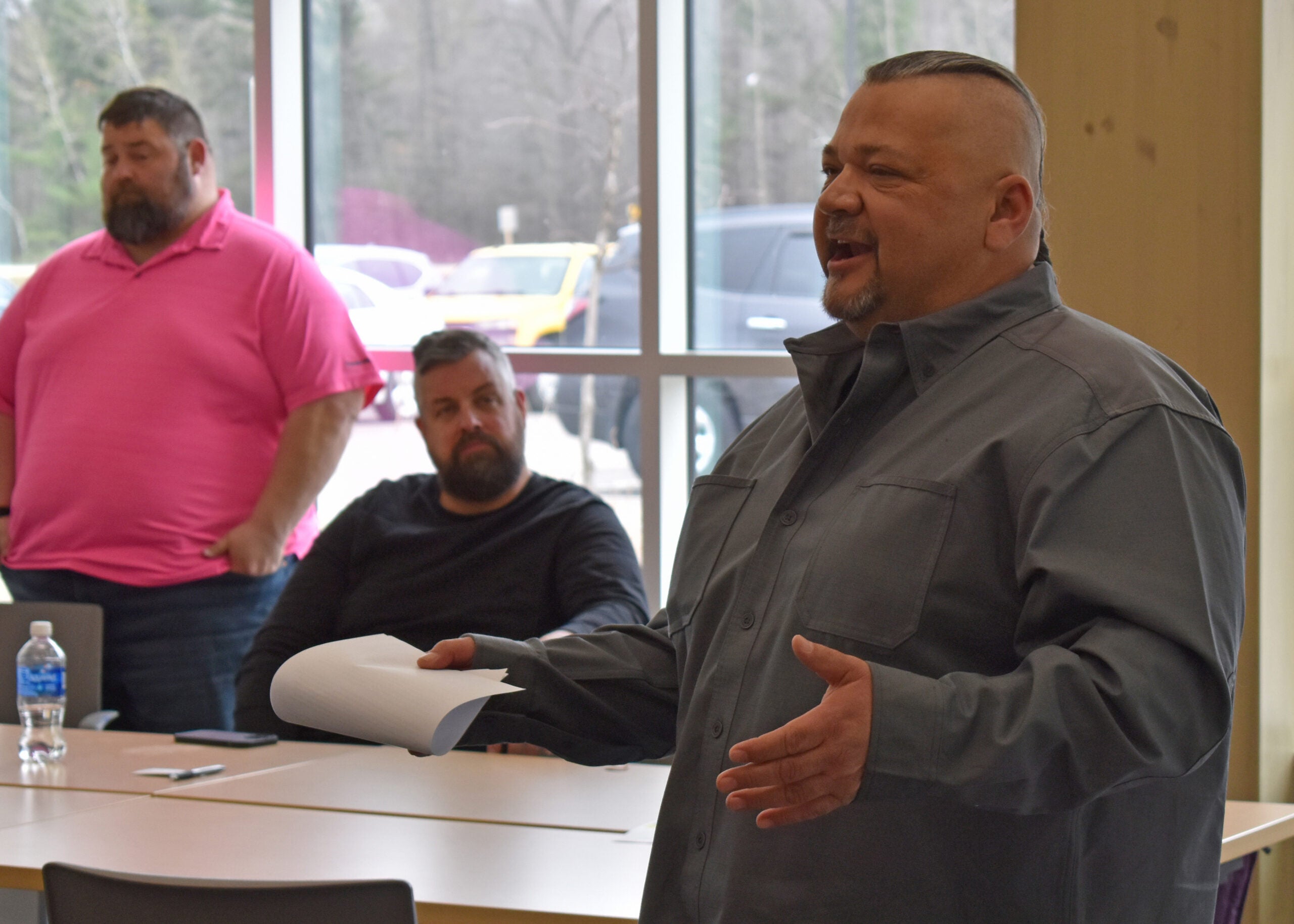
He said the solar installations will be completed at no cost to the elder, but some of the energy savings they receive will be given back to the tribe as a service fee. Those funds will then be used to expand solar programs in the tribe.
The Menominee are also working on a feasibility study on a potential large solar array and microgrid project in the Middle Village community, Pyawasay said.
He said the tribe is looking for other locations on the reservation for other solar systems, beginning with its largest energy users. The Menominee are also planning to replace a dam and potentially add a hydroelectric pump to it.
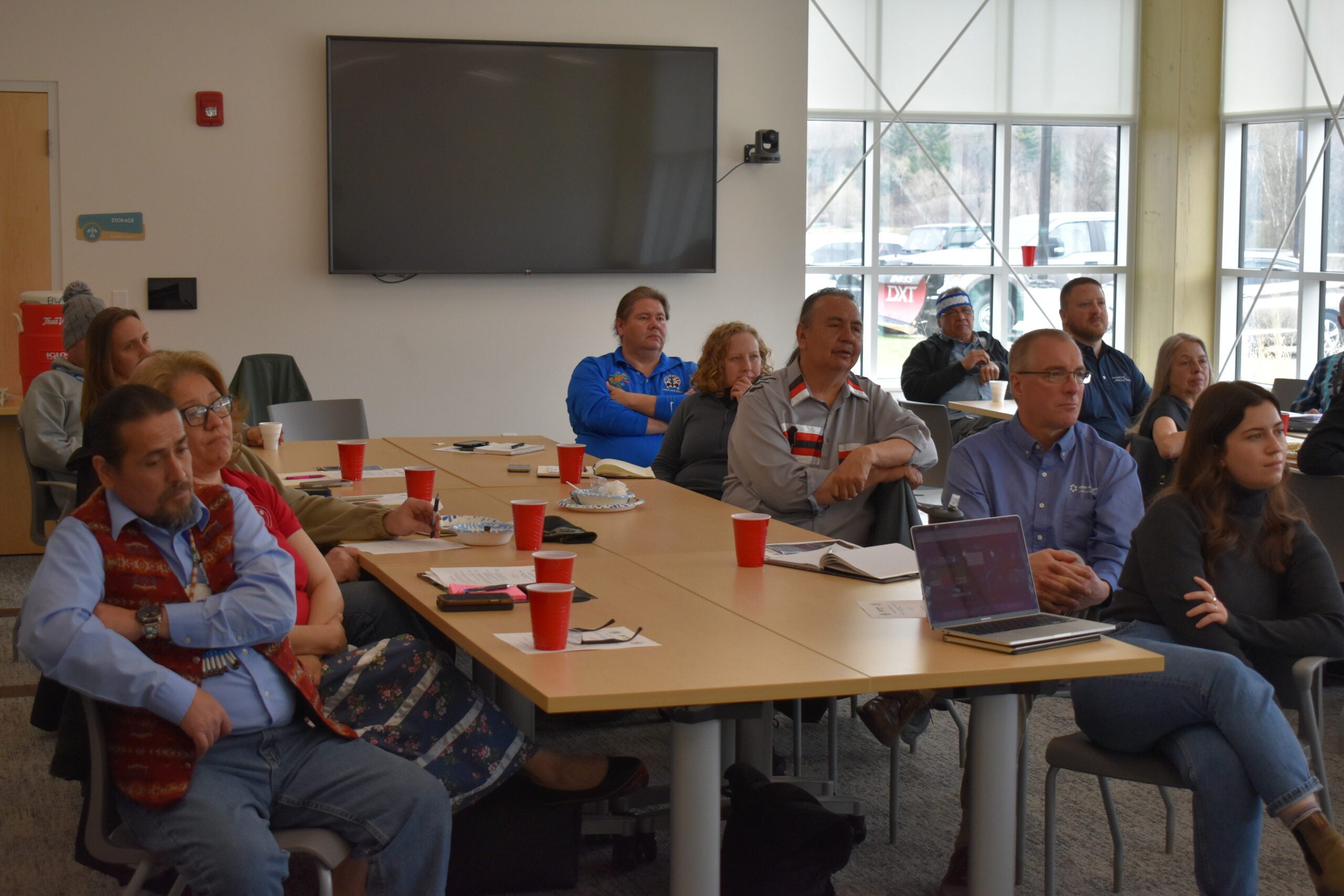
Cody Two Bears, executive director of Indigenized Energy and member of the Standing Rock Sioux tribe, said he views the transition to clean energy as especially important for Indigenous communities — not only in Wisconsin but around the country.
“Native people have been oppressed for so many years, and this work creates healing for our people,” he said. “Even though we’re creating jobs, even though we’re creating opportunity (and) we’re giving tribes the tools, I feel like this work is a sacred journey, and it heals our nations.”
Wisconsin Public Radio, © Copyright 2025, Board of Regents of the University of Wisconsin System and Wisconsin Educational Communications Board.

